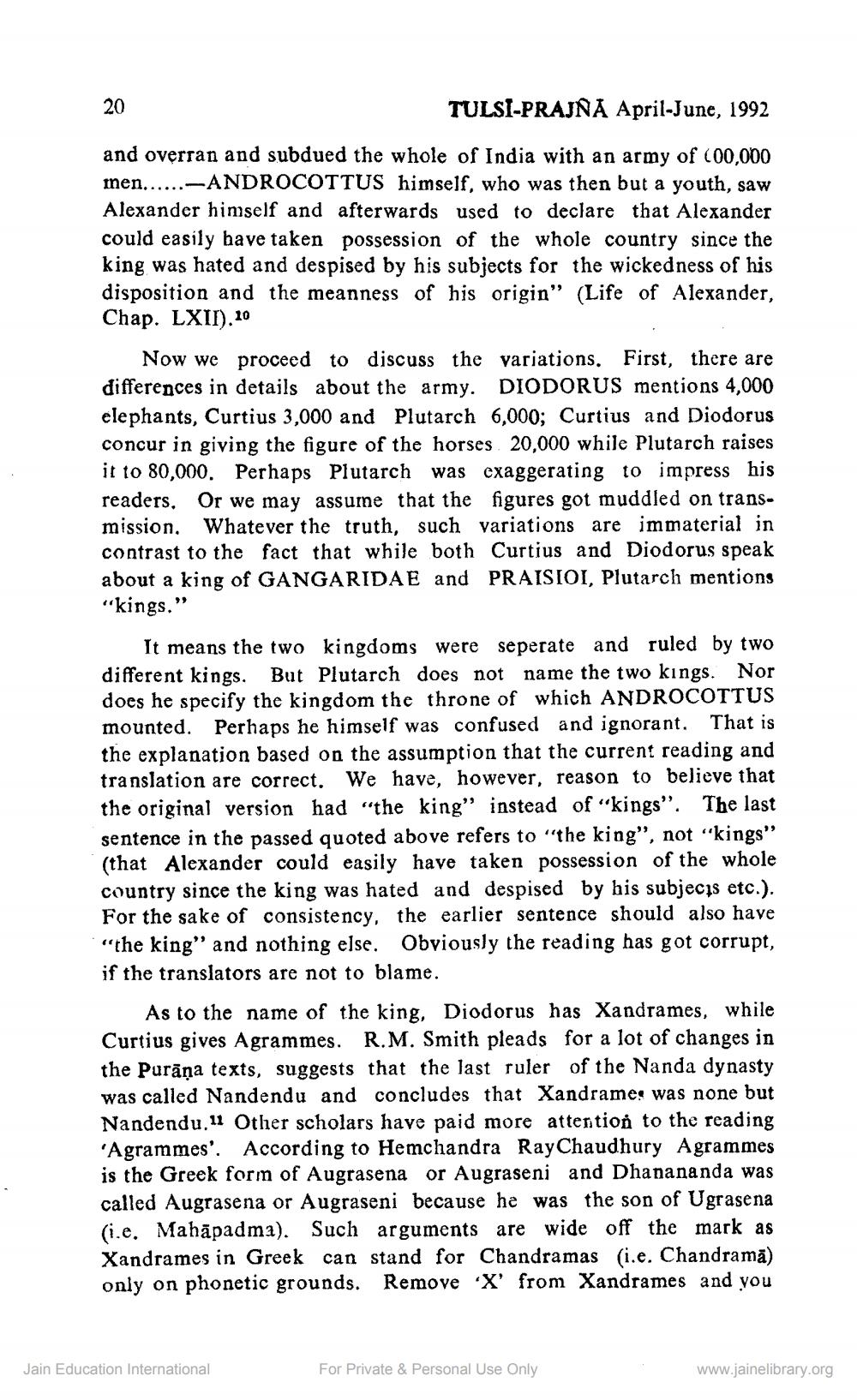________________
20
TULSI-PRAJNA April-June, 1992 and overran and subdued the whole of India with an army of 100,000 men......-ANDROCOTTUS himself, who was then but a youth, saw Alexander himself and afterwards used to declare that Alexander could easily have taken possession of the whole country since the king was hated and despised by his subjects for the wickedness of his disposition and the meanness of his origin" (Life of Alexander, Chap. LXII),10
Now we proceed to discuss the variations. First, there are differences in details about the army. DIODORUS mentions 4,000 elephants, Curtius 3,000 and Plutarch 6,000; Curtius and Diodorus concur in giving the figure of the horses 20,000 while Plutarch raises it to 80,000. Perhaps Plutarch was exaggerating to impress his readers. Or we may assume that the figures got muddled on transmission. Whatever the truth, such variations are immaterial in contrast to the fact that while both Curtius and Diodorus speak about a king of GANGARIDAE and PRAISIOI, Plutarch mentions "kings.”
It means the two kingdoms were seperate and ruled by two different kings. But Plutarch does not name the two kings. Nor does he specify the kingdom the throne of which ANDROCOTTUS mounted. Perhaps he himself was confused and ignorant. That is the explanation based on the assumption that the current reading and translation are correct. We have, however, reason to believe that the original version had "the king" instead of "kings”. The last sentence in the passed quoted above refers to "the king”, not "kings" (that Alexander could easily have taken possession of the whole country since the king was hated and despised by his subjecis etc.). For the sake of consistency, the earlier sentence should also have "the king” and nothing else. Obviously the reading has got corrupt, if the translators are not to blame.
As to the name of the king, Diodorus has Xandrames, while Curtius gives Agrammes. R.M. Smith pleads for a lot of changes in the Purāņa texts, suggests that the last ruler of the Nanda dynasty was called Nandendu and concludes that Xandrame. was none but Nandendu. 11 Other scholars have paid more attention to the reading 'Agrammes'. According to Hemchandra Ray Chaudhury Agrammes is the Greek form of Augrasena or Augraseni and Dhanananda was called Augrasena or Augraseni because he was the son of Ugrasena (i.e. Mahāpadma). Such arguments are wide off the mark as Xandrames in Greek can stand for Chandramas (i.e. Chandramā) only on phonetic grounds. Remove X' from Xandrames and you
Jain Education International
For Private & Personal Use Only
www.jainelibrary.org




